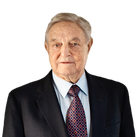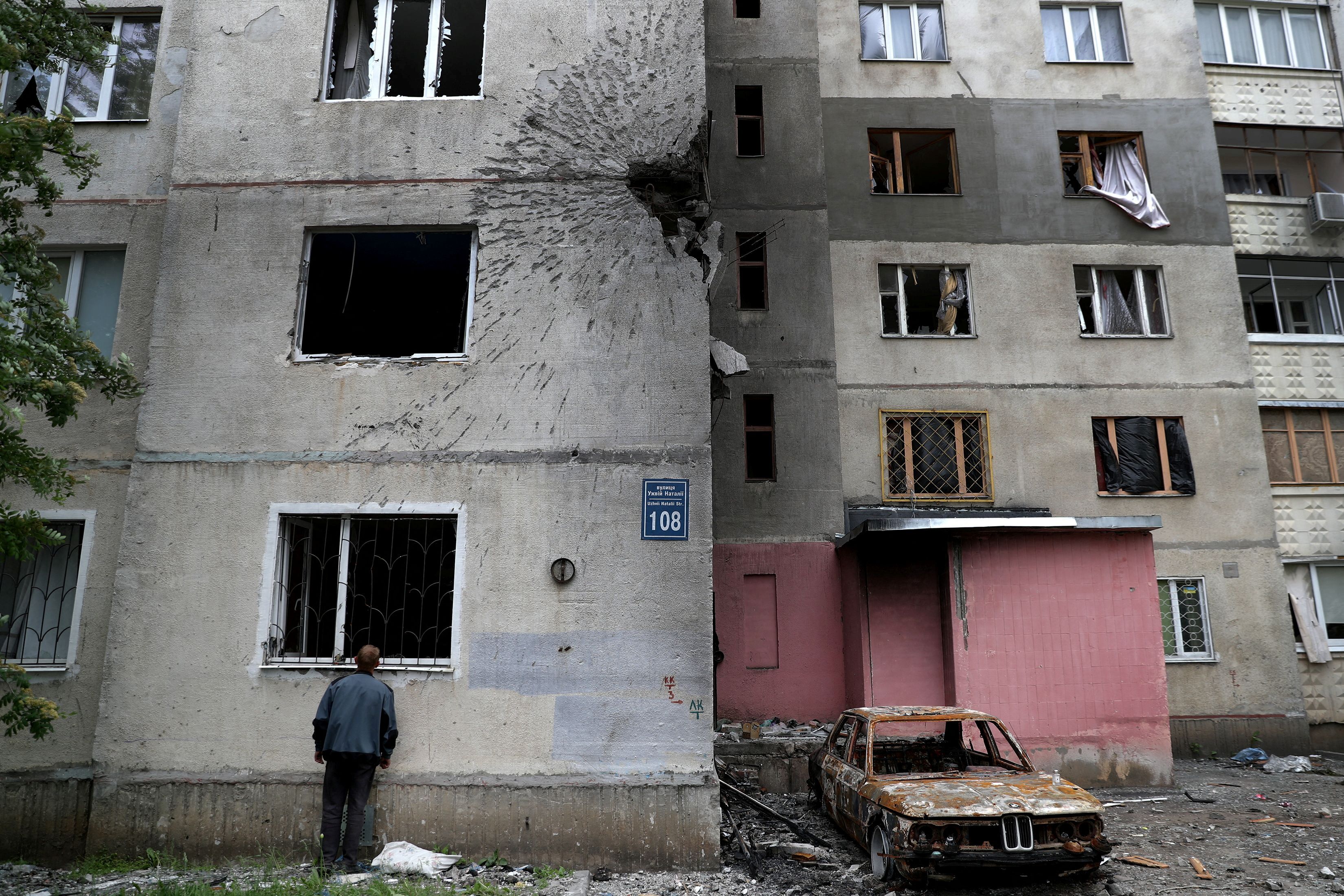We must defeat Putin – the fate of civilisation depends on it
Most of us accept that we must eventually die, but we take it for granted our world will survive


Since the last annual meeting of the World Economic Forum, the course of history has changed dramatically. Russia invaded Ukraine, shaking the European Union, which was established to prevent war from returning to the continent, to its very core. Even when the fighting stops, as it eventually must, the situation will never revert to the status quo ante.
Indeed, the Russian invasion may turn out to be the beginning of the Third World War, and our civilisation may not survive it. The invasion of Ukraine did not come out of the blue. The world has been increasingly engaged over the past half-decade, or longer, in a struggle between two diametrically opposed systems of governance: open society and closed society. Let me define the differences as simply as I can.
In an open society, the role of the state is to protect the freedom of the individual; in a closed society, the role of the individual is to serve the rulers of the state. Other issues that concern all humanity – fighting pandemics and climate change, avoiding nuclear war, maintaining global institutions – have had to take a back seat to this systemic struggle. That’s why I say our civilisation may not survive.
I became engaged in what I call political philanthropy in the 1980s, a time when a large part of the world languished under Communist rule. I wanted to help people who were outraged and fought against oppression. I established one foundation after another in rapid succession in what was then the Soviet empire. The effort turned out to be more successful than I expected.
Those were exciting days. They also coincided with a period of personal financial success that allowed me to increase my annual giving from $3m in 1984 to more than $300m three years later.
After the September 11 terrorist attacks in 2001, the tide began to turn against open societies. Repressive regimes are now ascendant, and open societies are under siege. Today, China and Russia represent the greatest threats to open societies.
Resisting Russia
The invasion of Ukraine has now entered a new, more challenging phase for the country’s defenders. The Ukrainian army must fight on open terrain where the numerical superiority of Russian forces is more difficult to overcome.
The Ukrainians are doing their best, counterattacking, even at times boldly penetrating Russian territory. Such tactics have had the added benefit of bringing home to the Russian population what is really going on.
The US has also done its best to reduce the financial gap between Russia and Ukraine, most recently by allocating an unprecedented $40bn (£31.7bn) in military and financial aid to Ukraine’s government. I can’t predict the outcome, but Ukraine certainly has a fighting chance.
A More United Europe
French president Emmanuel Macron, in a significant broadening of his pro-European approach, has advocated the importance of geographic expansion, and the need for the EU to prepare for it. Not only Ukraine but also Moldova, Georgia, and the Western Balkans should qualify for EU membership.
It will take time to work out the details, but Europe seems to be moving in the right direction. It has responded to the invasion of Ukraine with greater speed, unity, and vigour than ever before in its history. After a hesitant start, European Commission president Ursula von der Leyen also has found a strong pro-European voice.
But Europe’s dependence on Russian fossil fuels remains excessive, owing largely to the mercantilist policies pursued by former German chancellor Angela Merkel. She had made special deals with Russia for the supply of gas and made China Germany’s largest trading partner. Germany became the best performing economy in Europe, but now there is a heavy price to pay. Germany’s economy needs to be reoriented. And that will take a long time.
German chancellor Olaf Scholz was elected because he promised continuity with Merkel’s policies and style of government. But events forced him to abandon continuity, which did not come easy because he had to break with some hallowed traditions of his own Social Democratic Party.
When it comes to maintaining European unity, however, Scholz always seems to do the right thing in the end. He suspended the Nord Stream 2 gas pipeline, committed €100bn to defence, and provided arms to Ukraine, breaking with a long-standing taboo. And western democracies more generally responded with similar resolve to the Russian invasion of Ukraine.
Despotic Disasters
What do the two dictators, Putin and Xi, now tied together in an alliance, have to show for themselves? They have a lot in common. They rule by intimidation, and as a consequence, they make mind-boggling mistakes. Putin expected to be welcomed in Ukraine as a liberator; likewise, Xi is sticking to a zero-Covid policy that can’t possibly be sustained.
Putin seems to have recognised that he made a terrible mistake when he invaded Ukraine and is now preparing the ground for negotiating a ceasefire. But a ceasefire is unattainable because he cannot be trusted. Putin would have to start peace negotiations, which he will never do because it would be equivalent to resigning.
The situation is confusing. A military expert who had been opposed to the invasion was allowed to go on Russian television to inform the public how bad the situation is. Later, he swore allegiance to Putin. Interestingly, Xi continues to support Putin, but no longer without limits.
This begins to explain why Xi is bound to fail. Giving Putin permission to launch an unsuccessful attack against Ukraine didn’t serve China’s best interests. Although China ought to be the senior partner in the alliance with Russia, Xi’s lack of assertiveness allowed Putin to usurp that position. But Xi’s worst mistake was to double down on his zero-Covid policy.
The continuing lockdowns have had disastrous consequences, pushing the Chinese economy into a free fall since March. In April, the nationwide highway logistics index, which measures road haulage across China, dropped to 70 per cent of its level one year ago. For Shanghai alone, the highway logistics index has dropped to 17 per cent of its year-earlier level. With more than 80 per cent of total freight volume carried by trucks in China, these numbers point to a near-collapse of domestic commercial shipping.
Moreover, the Caixin Composite PMI index, which uses data collected from some 400 companies to track private-sector business trends in China – including sales, new orders, employment, inventories, and prices – fell to 37.2, from 43.9 in March. When the PMI’s value is below 50, the economy is shrinking. China’s steeply declining economic activity is bound to have global consequences but, at least thus far, preparations for this have been scant.
These negative results will continue to gather momentum until Xi reverses course – which he will never do because he can’t admit a mistake. Coming on top of the real-estate crisis, the damage will be so great that it will affect the global economy. With the disruption of supply chains, global inflation is liable to turn into global depression.
Minimising Risks
For the west, the dilemma in dealing with Russia is that the weaker Putin gets, the more unpredictable he becomes. The member states of the EU feel the pressure. They realise that Putin may not wait until they develop alternative sources of energy before turning off the gas taps himself, while it really hurts, as he has done to Bulgaria, Poland, and Finland.
The REPowerEU program presented last week reflects these fears. Scholz is particularly anxious because of the special deals Merkel made with Russia. Draghi is more courageous, although Italy’s gas dependency is almost as high as Germany’s. Europe’s cohesion will face a severe test, but if it continues to act together, it could strengthen both Europe’s energy security and leadership on climate change.
What about China? Xi has many enemies. Nobody dares to attack him directly because he controls all the instruments of surveillance and repression. But it is well known that within the Communist Party, dissension has become so sharp that it has found expression in articles that ordinary people can read.
Contrary to expectations, Xi may not get his coveted third term because of the mistakes he has made. But even if he does, the politburo may not give him a free hand to select the members of the next politburo. That would greatly reduce his power and influence and make it less likely that he will become ruler for life.
Meanwhile, as the war in Ukraine rages on, the fight against climate change has had to take second place. Yet the experts tell us that we have already fallen far behind, and climate change is on the verge of becoming irreversible. That could be the end of our civilisation.
I find this prospect particularly frightening. Most of us accept the idea that we must eventually die, but we take it for granted that our civilisation will survive.
Therefore, we must mobilise all our resources to bring the war to an early end. The best and perhaps only way to preserve our civilisation is to defeat Putin. That’s the bottom line.
George Soros, founder and chair of the Open Society Foundations, is the author, most recently, of In Defense of Open Society (Public Affairs, 2019). This is an edited version of the speech which he gave at the World Economic Forum

Join our commenting forum
Join thought-provoking conversations, follow other Independent readers and see their replies